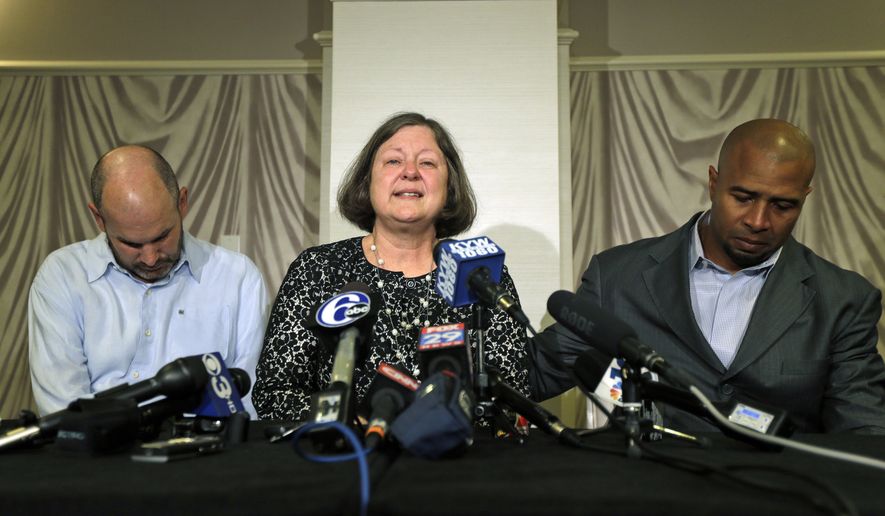Eight days after the long-awaited $765 million concussion settlement between the NFL and retired players was filed in federal court, Judge Anita Brody denied a preliminary motion to approve the deal.
Judge Brody expressed skepticism about the sufficiency of the proposed settlement amount, among other issues, in a 12-page brief filed in U.S. District Court for the Eastern District of Pennsylvania.
“It is difficult to see how the Monetary Award Fund would have the funds available over its lifespan to pay all claimants at these significant award levels,” Judge Brody wrote.
The judge’s unexpected decision followed months of delays in filing the agreement since the original announcement in August.
On Monday, 177 retired players, among the 4,891 plaintiffs in the lawsuit, according to a count by The Washington Times, filed a motion in federal court opposing the settlement. Other retired players have discussed opting out of the settlement.
Money is at the crux of Judge Brody’s concern.
The deal sets aside $675 million to compensate retired players who suffer from a variety of cognitive problems. The 85-page settlement agreement outlines a grim schedule of payments based on NFL experience, type of impairment, age at diagnosis and other factors. Top-end payouts range from $5 million for Lou Gehrig’s disease under age 45 to $4 million to death with chronic traumatic encephalopathy in the same age bracket. Awards are reduced for players with less than five seasons of experience.
But Judge Brody isn’t certain the hundreds of millions of dollars at the heart of the agreement are enough. The settlement applies to the estimated 20,000 retired players, not just the ones who sued, and the agreement asserts the compensation fund will last 65 years.
In a sternly-worded response, the judge asked the parties, in essence, to explain their math. She wondered why the agreement with voluminous addendums didn’t include the experts and methodology used to arrive at the belief that the amount will, in fact, be sufficient.
“In the absence of additional supporting evidence, I have concerns about the fairness, reasonableness, and adequacy of the Settlement,” Judge Brody wrote.
The judge didn’t question the scale used to determine how the money is doled out.
“I am primarily concerned that not all Retired NFL Football Players who ultimately receive a Qualifying Diagnosis or their related claimants will be paid,” Judge Brody wrote.
In statements released Tuesday afternoon, the NFL and the plaintiffs’ co-lead counsels downplayed the denial and expressed confidence the deal will be approved.
“We believe this is an extraordinary settlement for retired NFL players and their families,” the plaintiffs’ statement said.
“We are confident the settlement is fair and adequate,” the NFL said.
Judge Brody’s issues, though, didn’t end there.
She questioned the financial viability of the baseline assessment program, funded with up to $75 million. That’s supposed to include neuropsychological and neurological testing, plus follow-up testing and treatment if eligible retired players are diagnosed with moderate neurological impairment.
The judge also expressed concern over a little-noticed caveat buried in the agreement that bars retired players who receive monetary awards from suing the NCAA or any amateur football organizations over issues arising from cognitive impairment. The NCAA, while the target of several concussion-related lawsuits, isn’t party to the NFL litigation.
As a “first step” toward preliminary approval, Judge Brody asked for documentation explaining the compensation fund. That’s one step in a process that’s not ending any time soon.
• Nathan Fenno can be reached at nfenno@washingtontimes.com.




Please read our comment policy before commenting.